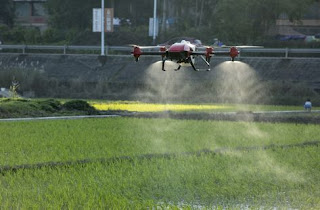Plantation Agriculture: Bridging the Gap Between Sustainability and Productivity
Plantation agriculture plays a crucial role in meeting the demands of a growing population while ensuring sustainable practices. It involves the large-scale cultivation of crops like coffee, tea, cocoa, rubber, palm oil, and more. This article explores the significance of plantation agriculture in bridging the gap between sustainability and productivity.
Table of Contents
1.Understanding Plantation Agriculture
2.The Impact of Plantation Agriculture on Sustainability
3.Balancing Productivity and Environmental Concerns
4.Sustainable Practices in Plantation Agriculture
5.Challenges and Solutions for Sustainable Plantation Agriculture
6.Technological Innovations in Plantation Agriculture
7.Future Prospects of Sustainable Plantation Agriculture
8.FAQs
1. Understanding Plantation Agriculture
Plantation agriculture refers to the large-scale cultivation of a single crop or a few related crops on extensive land areas. It involves specialized management practices, including planting, maintenance, harvesting, and processing. Plantation crops are typically grown in tropical or subtropical regions due to favorable climate conditions.
2. The Impact of Plantation Agriculture on Sustainability
Plantation agriculture has both positive and negative impacts on sustainability. On one hand, it contributes to economic growth, rural development, and job creation. It also provides a consistent supply of agricultural commodities to meet global demand. On the other hand, large-scale monoculture plantations can lead to deforestation, loss of biodiversity, soil degradation, and water pollution.
3. Balancing Productivity and Environmental Concerns
To bridge the gap between sustainability and productivity in plantation agriculture, it is essential to strike a balance between agricultural productivity and environmental concerns. Sustainable practices focus on maximizing crop yields while minimizing negative environmental impacts. This involves adopting integrated pest management, efficient water management, soil conservation techniques, and reducing chemical inputs.
4. Sustainable Practices in Plantation Agriculture
1 Agroforestry: Introducing tree species alongside cash crops helps restore biodiversity, reduce soil erosion, and provide shade and shelter for crops.
2 Precision Farming: Utilizing technology like remote sensing, drones, and GPS systems enables farmers to optimize resource allocation, reduce waste, and enhance productivity.
3 Organic Farming: Implementing organic methods eliminates the use of synthetic fertilizers and pesticides, promoting soil health, reducing chemical pollution, and producing healthier agricultural products.
4 Water Management: Employing efficient irrigation techniques such as drip irrigation and rainwater harvesting minimizes water wastage and preserves water resources.
5. Challenges and Solutions for Sustainable Plantation Agriculture
1 Deforestation: Implementing sustainable land-use practices, such as reforestation programs and agroforestry, helps mitigate the negative impacts of deforestation.
2 Socio Economic Issues: Promoting fair trade practices, empowering local communities, and ensuring decent working conditions contribute to sustainable plantation agriculture.
3 Climate Change: Developing climate-resilient crop varieties, implementing climate-smart agricultural practices, and reducing greenhouse gas emissions help address the challenges posed by climate change.
4 Certification and Traceability: Encouraging certification schemes and traceability systems ensures transparency, accountability, and promotes sustainable practices throughout the supply chain.
6. Technological Innovations in Plantation Agriculture
Technological advancements have revolutionized plantation agriculture, enhancing both productivity and sustainability. Some notable innovations include:
1 Smart Farming: Utilizing Internet of Things (IoT) devices, sensors, and data analytics to optimize resource utilization, monitor crop health, and improve decision-making.
2 Biotechnology: Genetic engineering and biotechnology techniques contribute to the development of disease-resistant and high-yielding crop varieties, reducing the need for agrochemicals.
3 Robotics and Automation: Automated machinery and robots streamline labor-intensive tasks, reduce human error, and improve overall efficiency.
7. Future Prospects of Sustainable Plantation Agriculture
The future of sustainable plantation agriculture lies in embracing innovative technologies, promoting biodiversity conservation, strengthening social welfare, and adopting climate-smart strategies. Collaboration between governments, farmers, researchers, and consumers is crucial for achieving long-term sustainability in the industry.
Plantation agriculture serves as a vital bridge between sustainability and productivity. By implementing sustainable practices and embracing technological innovations, it is possible to meet the global demand for agricultural commodities while preserving the environment and ensuring the well-being of local communities.
8.FAQs
Q:What crops are commonly grown in plantation agriculture?
A:Plantation agriculture includes crops such as coffee, tea, cocoa, rubber, palm oil, sugarcane, and bananas.
Q:How does plantation agriculture impact the environment?
A:Large-scale monoculture plantations can lead to deforestation, loss of biodiversity, soil degradation, and water pollution.
Q:What are some sustainable practices in plantation agriculture?
A:Sustainable practices include agroforestry, precision farming, organic farming, and efficient water management.
Q:What challenges does sustainable plantation agriculture face?
A:Challenges include deforestation, socio-economic issues, climate change, and the need for certification and traceability.
Q:How can technology contribute to sustainable plantation agriculture?
A:Technological innovations such as smart farming, biotechnology, and robotics enhance productivity, resource utilization, and decision-making in plantation agriculture.


